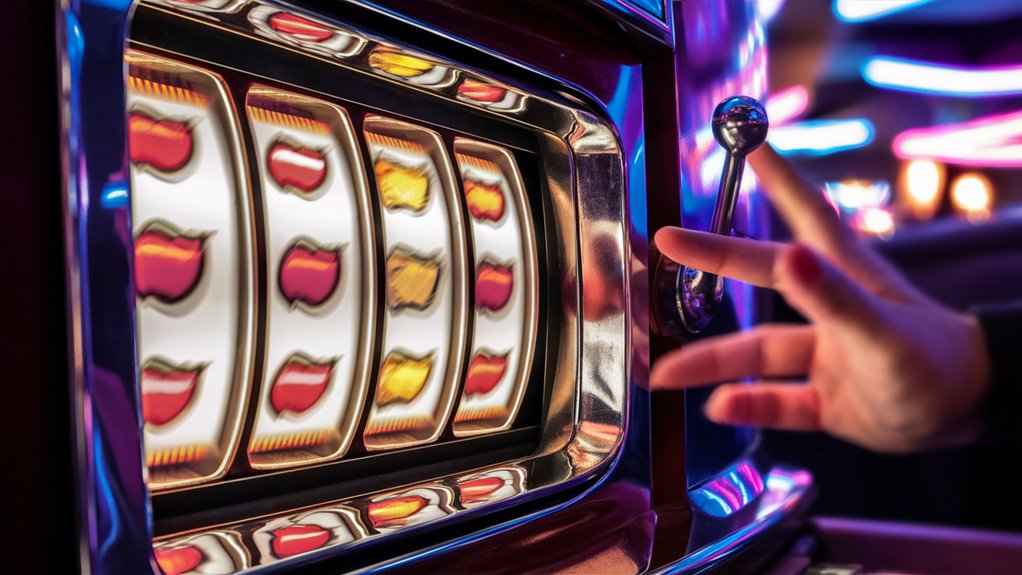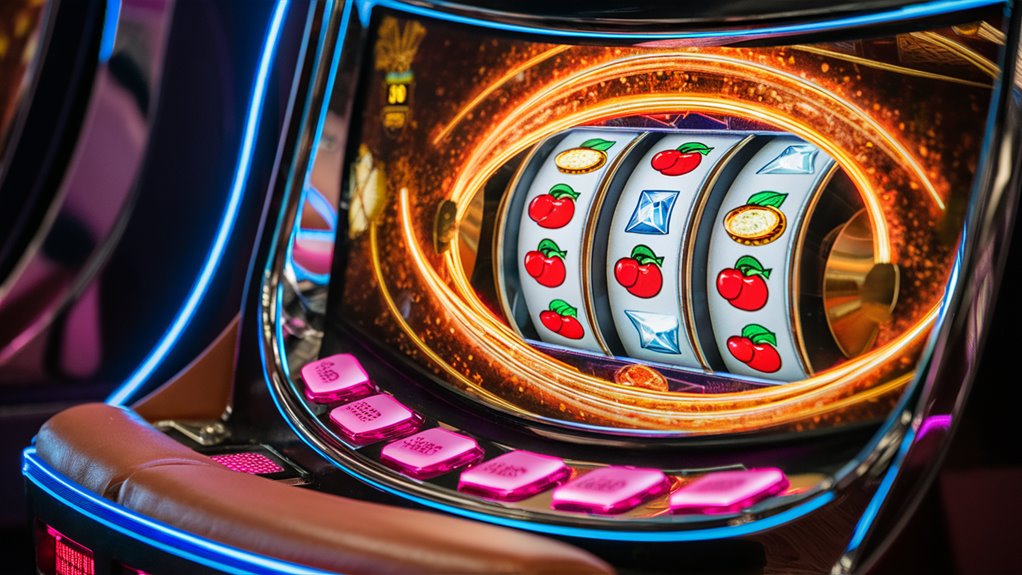How Slot Machines Hit the Brain

Today’s slot machines are brain work gems, made to pull in and shape the mind of the player with many smart tricks.
Making the Brain Want More
The setup of slot machines goes straight for the brain’s joy paths with smart win designs and almost-wins. These games keep an 85-98% pay rate, making a perfect balance that keeps players in while making money. Soft Tells and Subtle Strategies in Live Games
Playing with Your Senses
Key sights and sounds play a big part in how well these machines work. They use:
- C major music tones
- Bright, flashing lights
- Timed visual tricks
- Touch from buttons and handles
These bits work together to make a full-game feel that skips normal thinking and making choices.
Mind Tricks in Machines
These machines use random reward times, a strong mind trick that:
- Makes you wait in hope
- Keeps you interested
- Gives rewards now and then
- Messes with clear risk thinking
This smart mix of brain pushes and habit making turns simple bet games into big pull tools that link right to our joy brain bits.
How Dopamine Design Traps You in Games
Brain Science in Slot Machines
Dopamine bursts are key in today’s gambling games. These smart tools hit the brain’s joy zone with more than just win or lose.
The hope of a win is a big push, lighting up brain parts tied to fun and buzz.
Random Wins Keep You Playing
Today’s slot machines use random win times, an idea first used in studies by B.F. Skinner. These machines give surprise rewards that make dopamine even not just when you win but all through the game.
The smart mix of blinking lights, happy sounds, and almost-wins set up a steady flow of brain joy.
Why You Keep on Playing
The clever build of slot machines plays on the brain’s wiring by making cycles of hope and small joys. This loop works even when you lose, keeping your senses full. Cultivating Late-Hour Gains for Rich Bounties
The mind play in these setups shows why we keep gambling even when we lose money, as the brain grows used to the machine’s tricks.
How Close Calls Hook You in Gambling

Brain Play in Slots
Near-wins are a top use of mind science in today’s slot games.
These smart few wins fire up joy paths in the brain, making you feel almost like you’ve won, despite a loss.
Smart Set Up Keeps You In
Slot games set near-wins to hit in about 12-15% of spins. This set rate keeps players in and coming back.
Seeing two matching signs and then a close third ups the odds of more play by 30%.
Brain Bits and Thinking Wrong
The play on our mind’s pattern-spotting with near-wins makes real body signs.
Players spin and see their skin react and brain joy spots light up, even when their thinking knows they’ve lost money. Steering a Course Through Odd Bet Tides
This deep mind trick makes a hard-to-stop game loop that keeps you playing, no matter win or lose.
The Tricks of Slot Machine Sense Design
How Games Twist What You Think
Today’s slot machines make a full-on sense show with a planned mix of flashing lights, winning bell sounds, and fun pics.
This deep sense plan is key to keeping players, even when they lose.
What Brain Studies Show
Brain studies show that these sense tricks cause dopamine pops in players, making them feel high and hiding losses.
The smart mix of lights and sounds messes with clear thinking, impacting how players see time and cash.
Smart Steps and Light Patterns
Sound Work in Casino Games
Game designers use special sound bits proven to keep players in.
Win sounds are often in C major – a sound key shown to make us feel good.
More so, losing spins might sound a lot like wins, making what experts call losses that seem like wins.
Looks and Setting Impact
The big sense pull of modern slots does a lot:
- Pulls in players from around
- Makes it seem like wins come often
- Makes a deep game feel that keeps you there longer
- Blurs the line between winning and losing
This well-made setting shows why game design taps so deep into how we think, to keep us in and playing longer.
How Hit-and-Miss Wins Get You
The Pull of Not Always Winning
On and off reward times are a main mind trick driving slot addiction. This setup, made by mind studier B.F. Skinner, makes surprise reward patterns that hold interest way past set reward setups.
Studies show both people and animals react more to unsure rewards than sure ones. 추천 업체 리슽 확인
